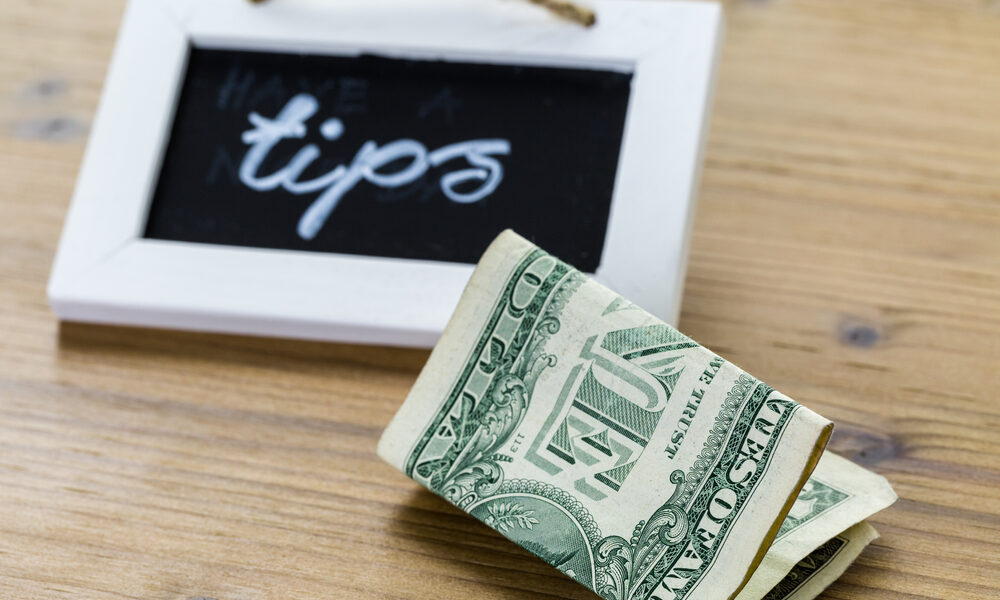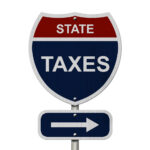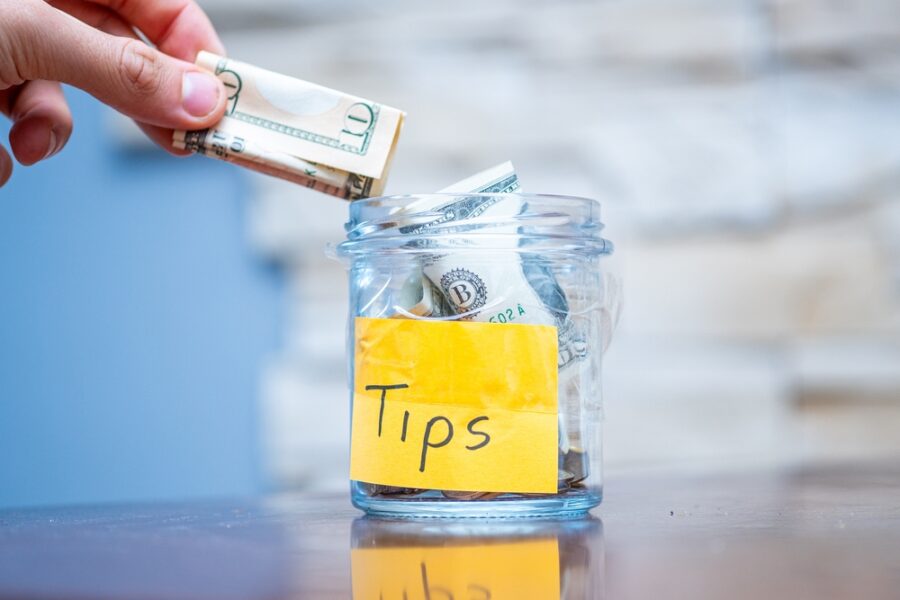On July 4th, while most of us were lighting fireworks or flipping burgers, the President signed one of the most meaningful tax changes in decades. The One Big Beautiful Bill Act (House Resolution 1 or OBBBA—yes, they really call it that) includes a bombshell provision: “No Tax on Tips”.
For our industry this could mean a tangible, immediate change in the financial well-being of many of our team members. If you’ve ever worked the floor, you know tips aren’t “extra”—they’re essential. In fact, many of our industry’s best earners—dealers, servers, valets—make far more from tips than their base wages. But not all tipped workers are created equal.
In casinos, there are at least three different groupings:
- Low-tip earners: Think buffet bussers, housekeepers or entry-level barbacks. Tips help, but they’re not life changing.
- Mid-range: Slot attendants, valets, bartenders—where tips often match or exceed their base pay.
- High-end: Dealers, maître d’s, cocktail servers. Many of the best of these workers can easily triple their hourly rate through tips alone.
At properties in Las Vegas, Atlantic City, and tribal casinos nationwide, a skilled dealer or an efficient cocktail server might earn $40,000 to $100,000+ just from tips. Ironically, most of these highly compensated positions start at minimum wage. In Nevada, that’s just $12/hour or about $25,000 annually. The federal rate isn’t much better at $12.50. Even if the casino meets the higher California minimum, it is only $16.50/hour or $34,320/year. In a few states, the minimum for those who receive tips versus those who don’t can be substantially lower. For example, New Jersey starts at $15.50/hour but drops to $5.62/hour for tip earners.
The simple math: more take-home pay
Let’s break it down with some real-world math. Say a good 21 dealer at a busy tribal casino makes $75,000 in tips annually. Under current rules, they might pay $7,500 to $16,500 in federal taxes on that amount depending on their bracket. But here’s the catch: only $25,000 of those tips will be exempt under OBBBA. And that could be even lower.
If you’re married and your spouse brings in a strong income that puts you above a combined $300,000, that exemption drops $100 for each $1,000 this couple makes above the $300k mark (same if you are single making over $150k).
But even at the base rate, the dealer’s savings will be just $2,500 to $5,500. That’s not bad, but perhaps not what some of these high earners were expecting.
The benefit (percentage-wise) is better with mid-to-low earners. A part-time server making $20,000 in tips could keep an extra $2,000 or more annually. That’s a 10% take home boost. That’s major for them. It could be a few car payments. With tariffs in place, it might be a partial downpayment on a new mobile phone or maybe even a cup or two of soon-to-be rare Brazilian coffee.
Ironically, the lowest earners may not see what they expected either. The minimum tax rate now is about 10%, but with deductions and other credits, some of those in this category pay little or no taxes anyway. For them, OBBBA is more smoke than fire.
Details, details, details
But, as any veteran GM or HR Director will tell you, tax changes in theory rarely go off without hitches.
The IRS has long demanded accurate tip reporting, using threats like the TRDA (Tip Rate Determination Agreement) to ensure that dealers and others report earnings honestly. Now that some tips won’t be taxed, will workers report more… or less?
And how aggressive will the IRS be? Probably not very. The agency is a shell of its former self. According to the Federal News Network, “The agency has lost more than a quarter of its employees under the Trump administration and faces further staffing cuts.” Those legendary 1990s audit threats used against casino workers to convince them to sign up for TRDA — don’t expect them back anytime soon.
There is some good news: the law is retroactive to January 1, 2025, meaning team members will see a full year of benefit when they file their 2025 taxes. The bad news? Unless extended, the whole thing sunsets after 2028.
And then there are state taxes. Nevada, of course, doesn’t have them. But states like California, New York, and Pennsylvania certainly do—and they’re not bound by this federal exemption. So, depending on your zip code, the tax relief may vary—wildly.
Other taxes
And what about Social Security and Medicare? Those FICA taxes (7.65%) are still required, and tips are not exempt. This entire issue will certainly make issuing accurate W2s and filing tax returns a bit more complicated and confusing.
OBBBA is hundreds of pages long1. Buried in Section 70201; (d) QUALIFIED TIPS; (2) EXCLUSIONS; Subsection (A) is the line that tips must be “paid voluntarily without any consequence.” In other words, large groups or parties at casino restaurants that have a “mandatory” tip rate for such bookings would not qualify (WTF!). This makes no sense whatsoever as such groups generally tip without that mandatory phrase.
Even more confusing, in that same subsection (d); item (1) says, “The term ‘qualified tips’ means cash tips received by an individual.” Some (including Chat GPT 4o) speculate that this would exclude tips paid with credit cards (OMG!!). Others (mainly humans), speculate that the “cash” designation is a way simply to eliminate consideration of gratuities such as concert tickets, candy, gifts, or other “non-cash” tips. They think that credit card tips would not be an issue. But who knows, until the IRS issues better guidelines?
Finally, what would this do to employee/employer relations? If take-home pay rises sharply, do employers reduce hourly wages for tipped roles? Do union contracts get reopened? Do participation pools (tip sharing agreements) get renegotiated with this new windfall in mind?
As always, change causes disruption, and casinos are anything but immune.
Tipping culture: Will it change?
Tips have been part of casino culture since the days of Mark Twain’s Mississippi riverboats and the infamous wild western saloons. But today, recent changes in other industries has cast some shade on the practice.
CBS News reported in May that, “Airports, coffee shops, restaurants and stadiums now have self-service kiosks. And merchants have programmed the devices with pre-set tip amounts — sometimes at 18% or higher — in hopes of generating more revenue, all of which are leaving customers baffled and experiencing tip fatigue.”
A WalletHub survey last year also found:
- Nearly 9 in 10 Americans think tipping culture has gotten out of control
- Nearly 3 in 10 Americans tip less when they’re presented with a tip suggestion screen
More recently, a national Bank Rate survey this June reported that 63% agree that the “tipping culture has gotten out of control.” The same survey ominously said, “The likelihood of tipping generally increases with age. Gen Zers and Millennials stand out as the least frequent tippers, while Gen Xers and Boomers are more likely to tip.” That could be bad news for tip earners, as our industry is experiencing a recent lowering of the average player age in the last few years.
Some worry that removing taxes on tips could inadvertently reduce customers’ generosity. “Why should I tip 20% now if the worker is getting that amount tax-free?” On the flip side, others may tip more freely knowing their money isn’t going to the “The Deep State.” Time will tell.
Finally, and unique to casinos, there are two other provisions in the new bill that are worrisome and could impact tips. One is the proposal to raise the slot machine jackpot reporting limit from the obsolete $1,200 level to $2,000. This is overdue, but a ridiculously small increase. Many in Congress actually floated a bill last March to raise the threshold to a more sensible $5,000+. Even the IRS’s own advisory council recommended in 2023 that the agency increase the threshold to $5,000 and index it to inflation for the future.
Surveying a handful of slot directors across the country in the last few weeks, most said that over 30% of their current taxable jackpots are between $2,001 and $5,000, with only 8% to 10% above that amount.
Here’s the problematic flip side. The prime time for slot attendant tipping is when a machine locks up at the $1,200 and greater jackpot level. Despite winning, players seldom like the delay caused by these payoffs. So hopefully with this irritation gone, they will be more generous. But realistically, with 60% of those tip-generating lockup opportunities disappearing, few believe it will be a net positive … even with no tax on those fewer tips.
At that point, operators will have an interesting choice. Keep their machines locking up at $1,200 (which players hate) or move that threshold to the new $2,000 level (players happy; slot attendants outraged!). One possible compromise would be if the latest Slot Accounting Systems added a player-activated tipping button or feature that displays when jackpots between $1,200 and $2,000 hit (which may or may not work, but it can’t hurt).
Also concerning is that the law now states that gamblers can only deduct 90% of their losses from their reported wins. In the past, gamblers could deduct all of their losses from their declared winning income. In other words, now they will have to pay taxes on money they never had. No one in the House or Senate seems to have any idea (or is willing to admit) how this provision ended up in the OBBBA.
Nevada Rep. Dina Titus, co-chair of the Congressional Gaming Caucus, quickly introduced the FAIR BET Act to restore the full gambling loss deduction and many of her colleagues jumped on board. In a statement provided to us, she said, “This common-sense legislation will bring fairness back to gaming taxation, making sure that gamblers can fully deduct losses when they report their winnings. It gives everyone – from recreational gamblers to high-stakes gamblers – a fair shake.”
But with Congress leery of broader tax reform, her bill may be DOA. As Senator John Cornyn of Texas warned: “Once you open a tax bill, everyone wants to stuff their idea in.” So for now, the unexplainable loss cap stays. That’s bad for gamblers and probably just as bad for the folks who serve them.
Beyond the team members
And then there’s the ethical question: should we really subsidize tips while other forms of income remain fully taxed? Not everyone agrees that this is a smart fiscal policy. Critics argue it benefits a subset of the population, while ignoring many equally hardworking Americans who earn low wages but not tips.
A Bloomberg Businessweek story in April said, “There’s the issue of fairness. Why should a server at a fancy restaurant in Manhattan get a tax break on their tips when a cook with the same income pays more?”
Casinos already have long-standing internal beefs about the disparities between:
- Slot attendants and technicians
- Dealers and supervisors
- Cocktail servers and barbacks
- Hotel front desk clerks, valets and bellhops
While the immediate impact is on workers, the wider casino ecosystem isn’t left untouched. Increased employee recruitment and retention is one potential benefit. While it has improved recently, casino jobs became harder to fill post-pandemic. If tipped roles suddenly offer tax-free income, we might see more stability in staffing and less reliance on costly temp labor or overtime coverages (NOTE: An even bigger tax exemption is on “overtime” wages in OBBBA.)
Casino payroll systems and slot machine lock up settings will need updates to properly reflect the new rules. That means time, money, and potential confusion during the transition—especially if different states have different interpretations, or if legislation lags implementation.
There’s also a marketing angle for HR recruiters. Smart operators may seize this proposal as a tool to become more aggressive: “Come work here and keep more of what you earn!” Expect to see those departments working quickly on signage, job fair banners, and digital ads if they sense an opportunity.
Final thoughts: popularity and pitfalls
There’s no question: “No Tax on Tips” is a game-changer for our industry. For many, it means more financial breathing room. For some, it might be a windfall. But like every evolution in gaming, it brings new challenges, uncertainties, and unintended consequences. From payroll systems and tax forms to union negotiations and guest behavior, the ripple effects will be felt.
Still, in a business built on hope, odds, and anticipation; this feels like the kind of gamble worth cheering for. As mentioned above, the devil will be in the details. And like most tax changes, it may be vulnerable to sudden reversals depending on who holds political power in the next few years. However, both Republicans and Democrats were seemingly united (only) on the “no tax on tips” section of OBBBA.
One thing is certain: the new law has our industry buzzing with guarded optimism. But there’s also a cautionary note from my 30+ years of casino management: I have never seen a change in any tip policy that didn’t make one or more groups very unhappy. That’s a “tip” you can bet on.
# # #
- The official version that President Trump signed on the 4th was 870 pages. If you download a copy, depending on the font you select, it varies from 300 to over 900 pages. Here’s a link where you can read it all if you’ve got nothing better to do for several days.







